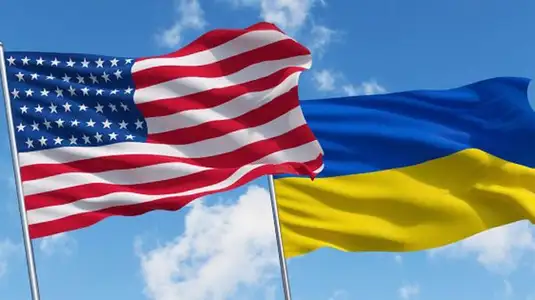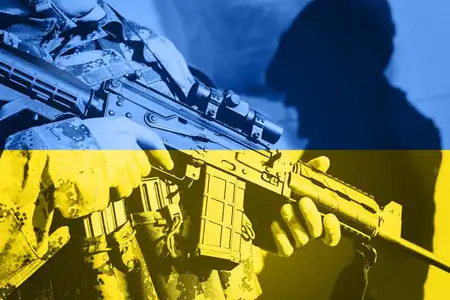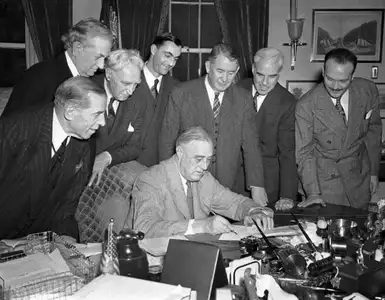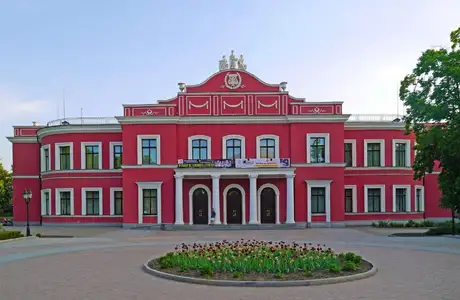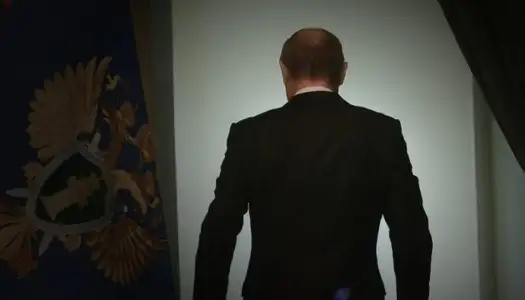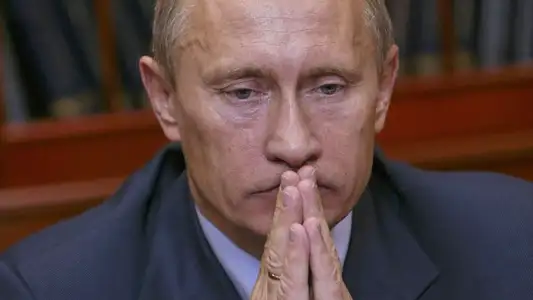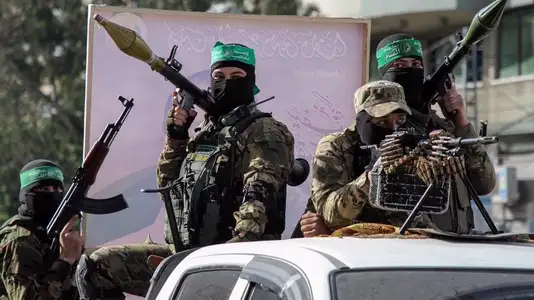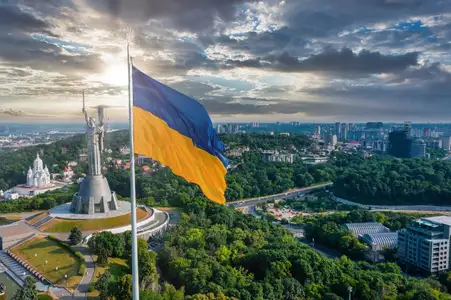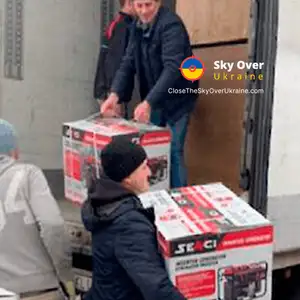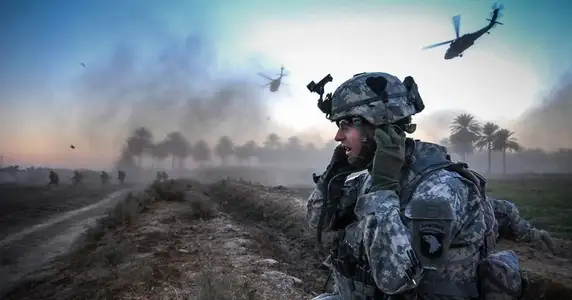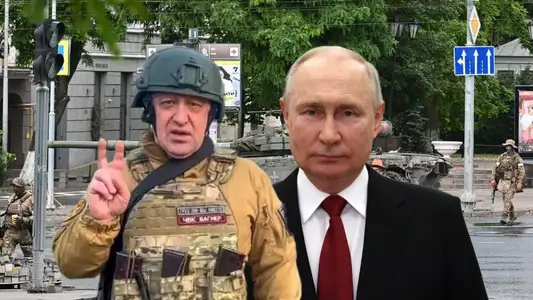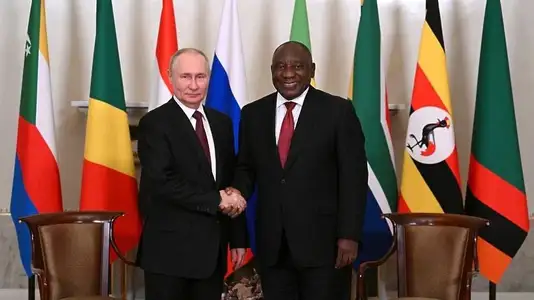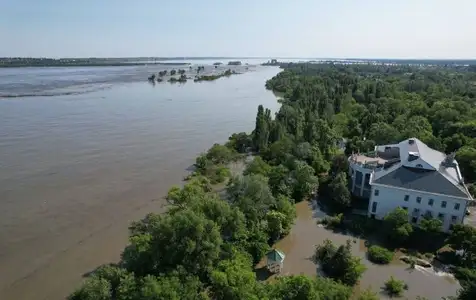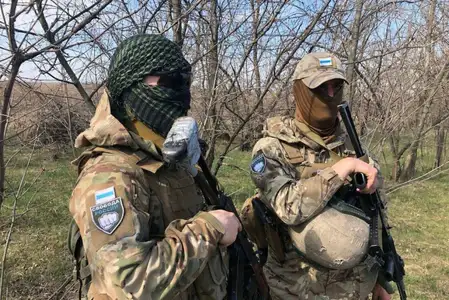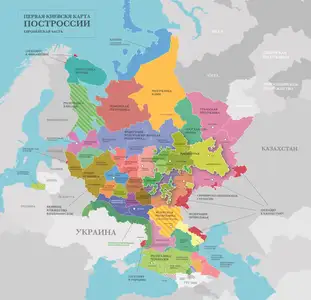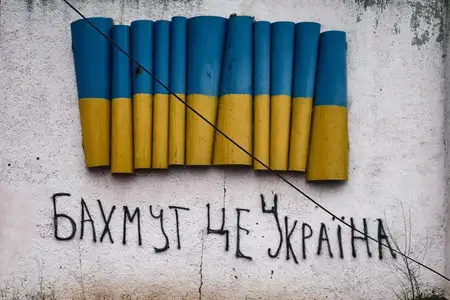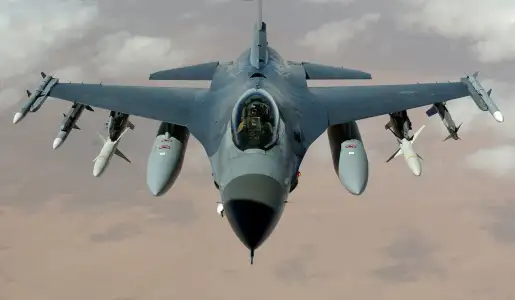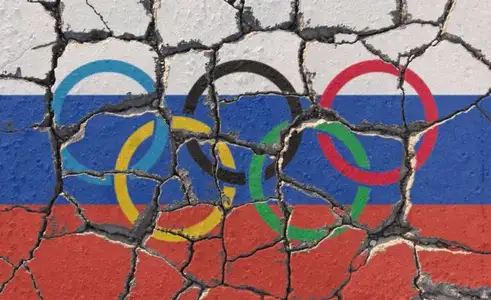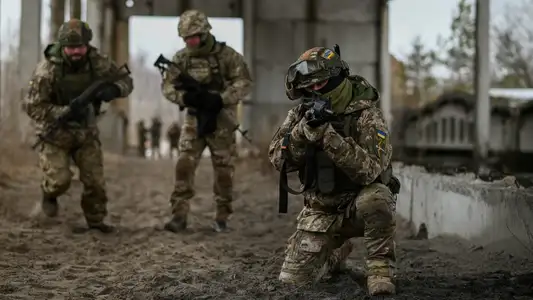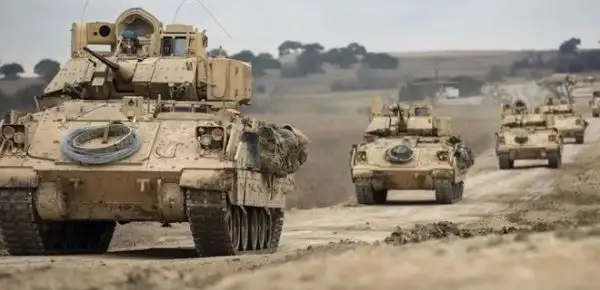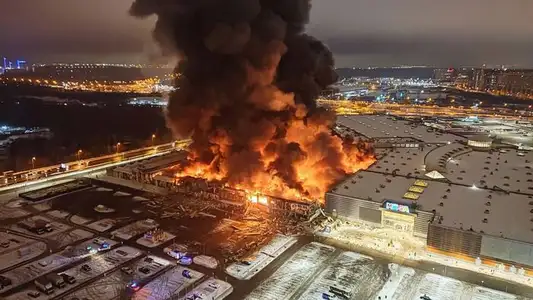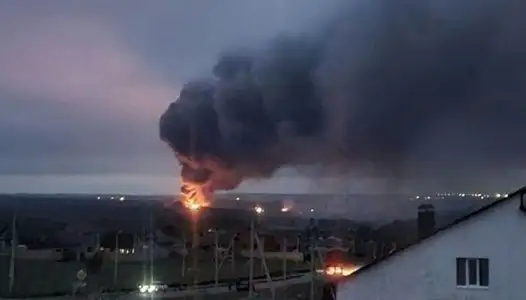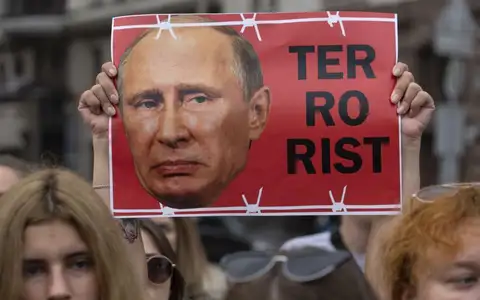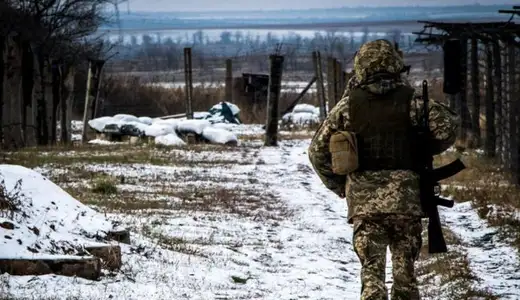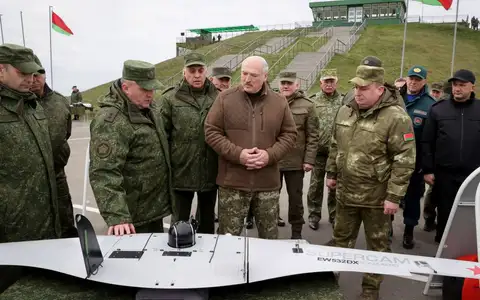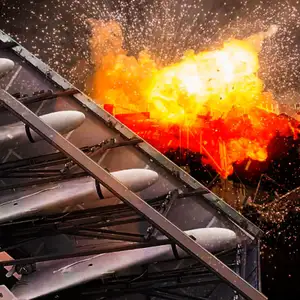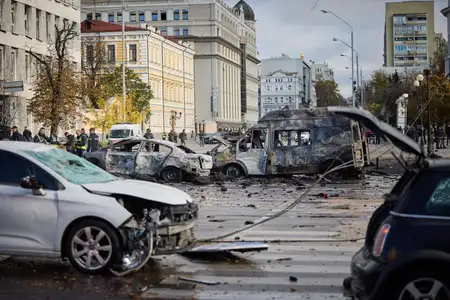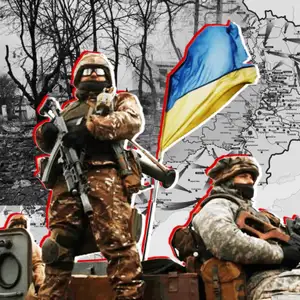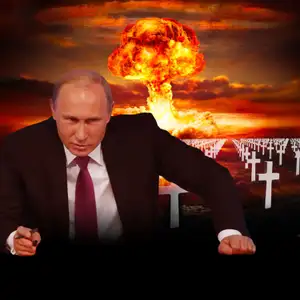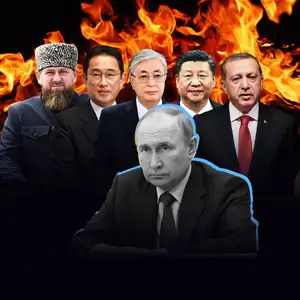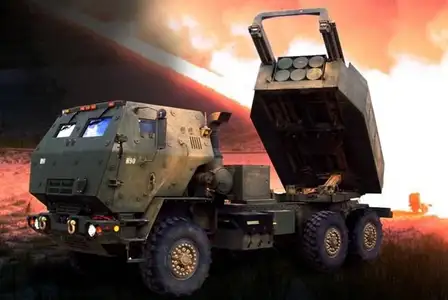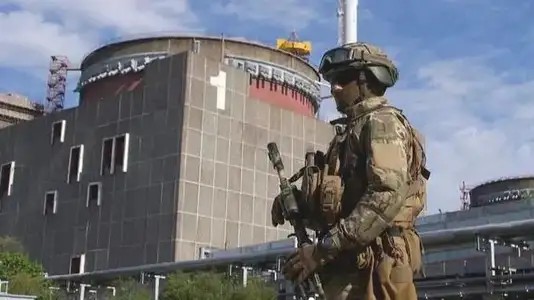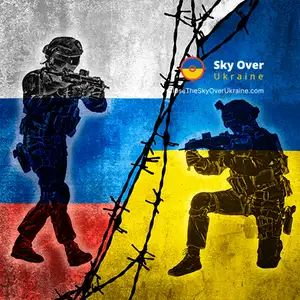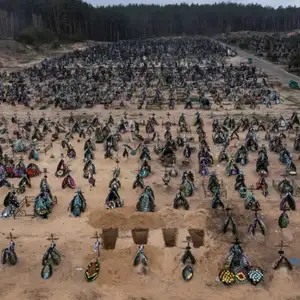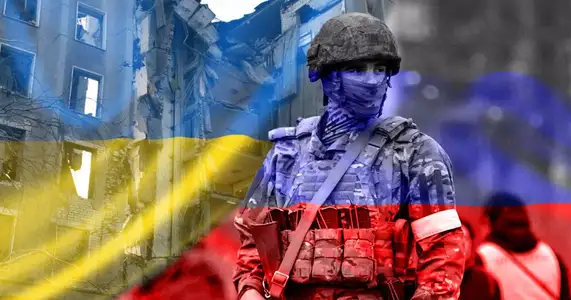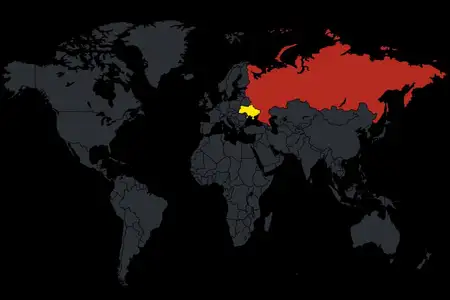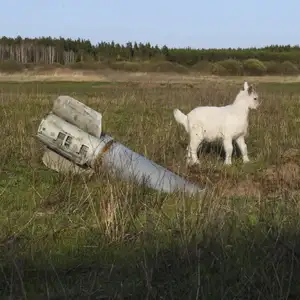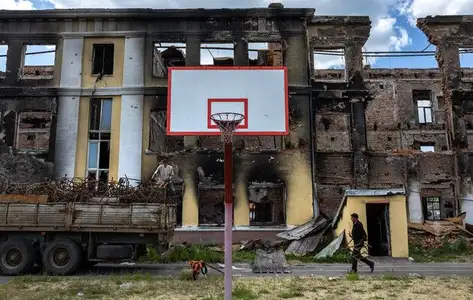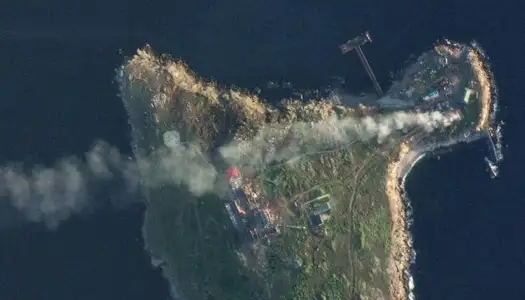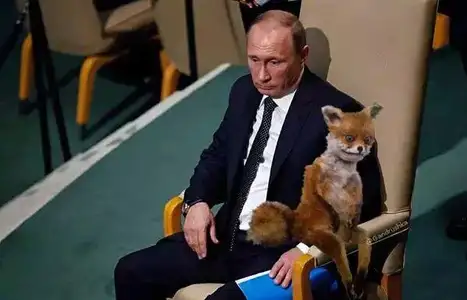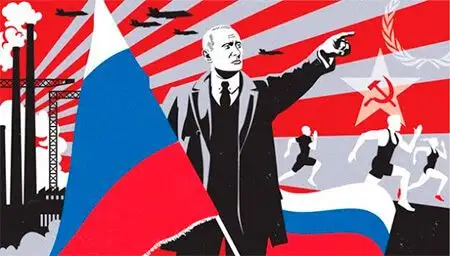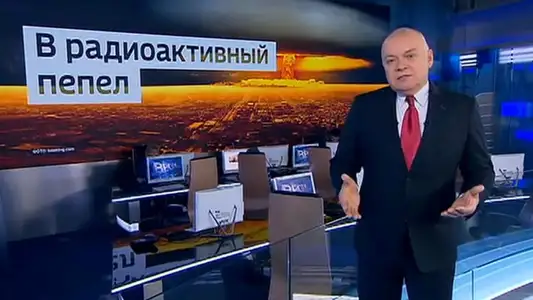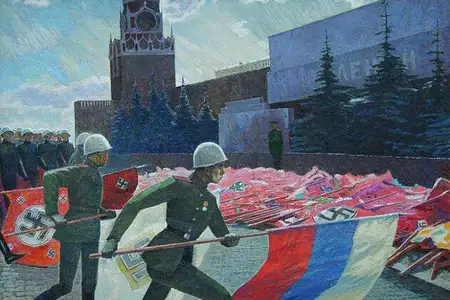Russian nuclear weapons in Belarus: a real threat or another bluff?
Recently, Russian dictator Vladimir Putin announced that Russia would deploy tactical nuclear weapons in Belarus among measures to counter Western arms deliveries to Ukraine.
Judging by the statements of world leaders, these intentions have in no way affected the West's attitude toward the war in Ukraine and, most importantly, its continued support for our country.
Let's examine why Putin needs nuclear weapons in Belarus and what the threat to Ukraine and other countries is.
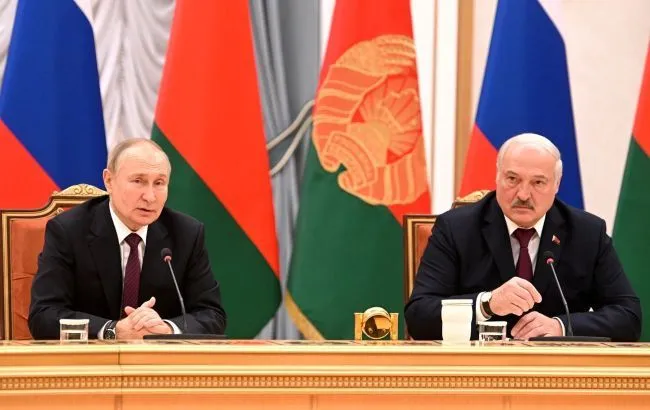
A new round of nuclear blackmail: what is it all about?
On March 25, the Rossiya 24 TV channel broadcast an interview with Vladimir Putin. In this conversation, the Russian president for the first time commented in detail on the Russian leadership's plans to respond to large-scale supplies of Western arms to Ukraine.
The Kremlin's most high-profile move was its decision to deploy tactical nuclear weapons (TNW) on the territory of Belarus. According to Putin, 10 planes of the Belarusian Air Force are already ready to use this type of weapon. Russia also gave the neighboring country Iskander systems, which may be carriers for TNW, and plans to finish building a storage facility for TNW in Belarus by July 1.
Tactical nuclear weapons are used to hit targets on the battlefield and can replace conventional warheads in conventional weapons systems. They require a delivery system, such as Iskander missiles, short-range ballistic missiles that Russia used to launch conventional warheads in Ukraine and Syria.
Experts note that tactical nuclear weapons are launched solely to achieve results on the battlefield and are not intended to attack a city. They are smaller warheads and can have a yield of up to 100 kilotons, depending on the target.
In contrast, strategic nuclear weapons are delivered to the target using intercontinental missiles and are capable of destroying an entire city. Such weapons can be launched, for example, from the territory of Russia to hit the territory of the United States. The power of such a warhead exceeds 100 kilotons, and it can cause great damage. At the moment strategic nuclear weapons are out of the question.
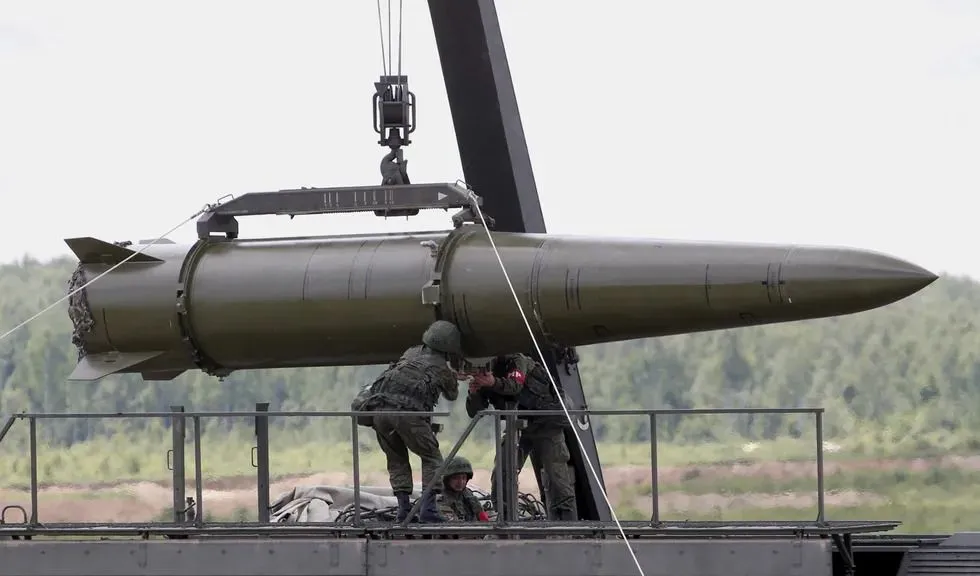
The answer to depleted uranium shells?
Why did Putin make this statement now? This is not the first time the Russian president has resorted to nuclear blackmail during the full-scale war in Ukraine. His troops have been in control of the Zaporizhzhia nuclear power plant since March 2022, and Moscow recently suspended its participation in the Strategic Arms Reduction Treaty.
Many observers took Putin's statement as a reaction to a report that Britain would soon give Ukraine depleted uranium shells for Challenger 2 tanks because they are most effective in defeating modern tanks and other armored vehicles.
The news about the uranium shells caused a storm of emotions in the ranks of Russian propaganda, of which Putin himself is an integral part. In Russia, the words of the representative of the British Defense Ministry were interpreted almost as a fact of nuclear arms transfer and readiness to use a "dirty bomb" and turn Ukraine into an uninhabitable territory. The Kremlin called it "another provocation" and said that there was a threat of escalation up to a global tragedy.
The news caught Putin at the meeting with Chinese leader Xi Jinping. And he saw in it the West's readiness to fight against Russia “to the last Ukrainian”!
“I would like to note in this regard that if all this happens, Russia will have to respond accordingly, bearing in mind that the collective West is already beginning to use weapons with a nuclear component,” Putin added.
Defense Minister Sergei Shoigu stated about “another step in the nuclear escalation” while Foreign Minister Sergei Lavrov called Britain's plans a violation of international humanitarian law. Self-proclaimed President of Belarus Alexander Lukashenko noted that Moscow may transfer ammunition “with real uranium” to Minsk.
The White House responded to Russia's concerns ironically. “If Russia is deeply concerned about the health of its tanks and its tankers, the safest option for them is to move them across the border and get them out of Ukraine,” said John Kirby, strategic communications coordinator for the U.S. National Security Council.
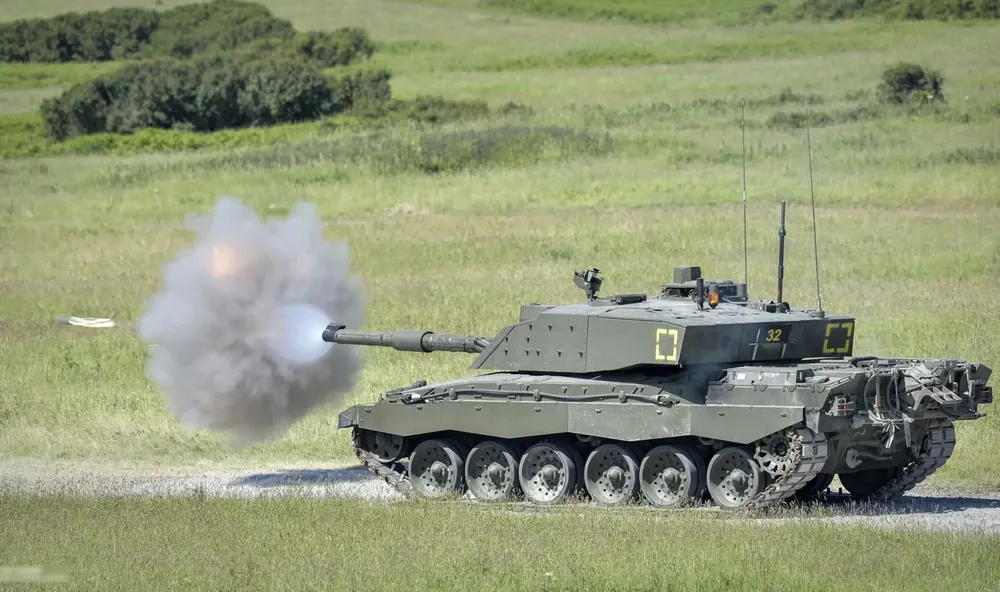
But seriously speaking, depleted uranium shells are not nuclear or chemical weapons, so their use is not forbidden by international conventions. They are in service with a number of countries, primarily those that are members of the “nuclear club”.
Depleted uranium is a byproduct of the enrichment of natural uranium in the production of nuclear fuel or nuclear warheads. It is a very dense metal, which is useful for the production of armor-piercing shells and bombs. The increased firepower of such projectiles makes it much easier to penetrate armor.
As for tank weapons specifically, we are talking about 120-mm sub-caliber ammunition. As noted by the Center for Counteracting Disinformation under the National Security and Defense Council of Ukraine, they have an armor penetration level of up to 700 mm. And this allows hitting all types of Russian tanks and armored vehicles.
However, a number of analysts point out that the fact that Putin announced the deployment of TNW on the territory of Belarus right now is hardly directly related to the statements about depleted uranium shells. After all, if Russia really plans to finish construction of the storage facility for TNW in Belarus by July 1, then most likely work on its construction began much earlier (because it is a very large and serious object), which means that these plans also did not appear yesterday.
The story with the depleted uranium shells should rather be seen only as a trigger. In the eyes of Russian propaganda, this fact allegedly increases the “danger” posed by Western arms deliveries to Ukraine.
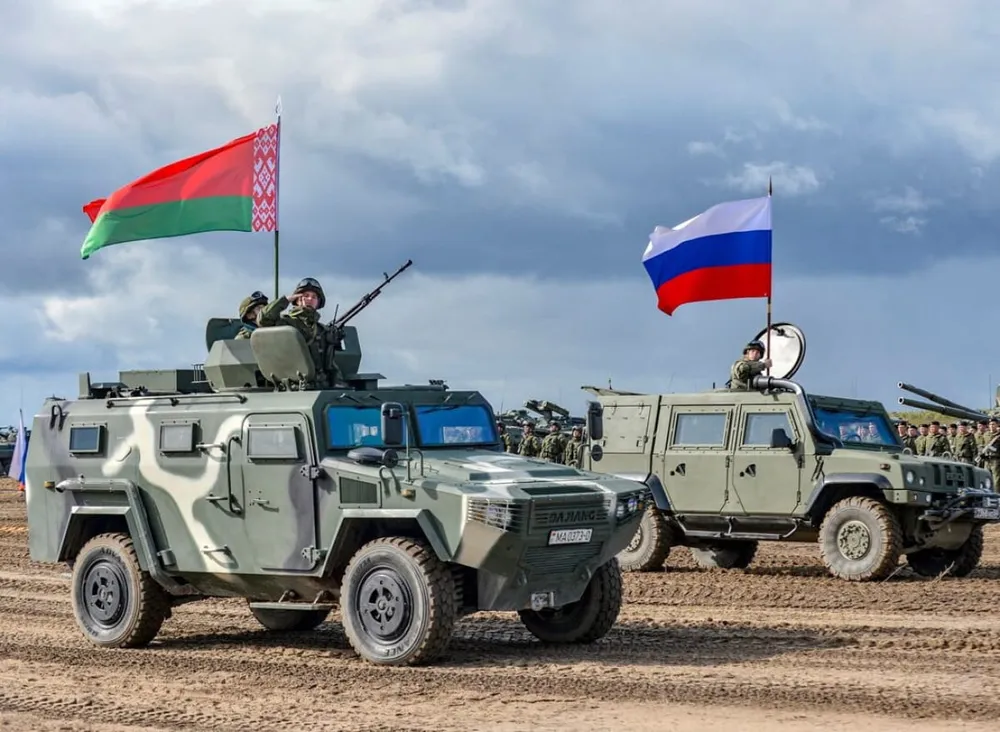
At the same time, it has long been known that the self-proclaimed president of Belarus Alexander Lukashenko is in favor of the deployment of nuclear weapons in Belarus. In fact, Putin justified his decision by the consent of the Belarusian satellite. In addition, he said that Russia is doing “the same thing they [the U.S.] have been doing for decades” by deploying tactical nuclear weapons in NATO countries.
Belarus is using the same rhetoric. Minsk claims that the deployment of Russian nuclear weapons allegedly does not contradict international treaties. At the same time, Belarus complained about “threats” coming from NATO. The Foreign Ministry said it was forced to strengthen security within the framework of the “Union State” against the background of “unprecedented political, economic and information pressure from the West”.
The main reaction of the world: we will not stop supporting Ukraine
The international community immediately reacted to Putin's statement. In the West, there was sharp condemnation: in yet another attempt to intimidate Ukraine's allies they saw, on the one hand, a threat to security in Europe, and on the other hand, a blatant weakness of the Kremlin.
The U.S. reaction was rather restrained. President Joe Biden expressed concern over the issue, while the Pentagon indicated that it was monitoring the situation and reminded that any use of nuclear weapons in Ukraine would have consequences, even if these were low-yield tactical weapons.
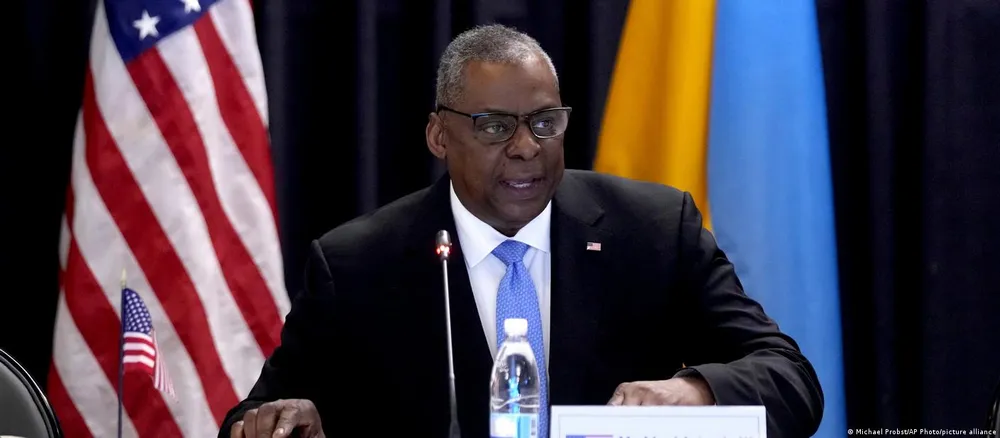
NATO representatives called Russian nuclear rhetoric “dangerous and irresponsible”, but also noted that in fact there has been no threatening change in Russian nuclear policy so far.
The EU considers the deployment of Russian nuclear weapons in Belarus as a threat to European security. France condemned Putin's statement calling on Russia to abandon these plans. Berlin, having correctly understood the intentions of the Moscow dictator, accused him of attempted nuclear intimidation. Spain also drew the right conclusions by pointing out that Putin's nuclear plans prove that he is not interested in peace. The Lithuanian Defense Ministry reasonably said it was not worth getting distracted by Putin's statements about nuclear weapons.
Perhaps what Ukrainians expected most from the West was the position unambiguously expressed by Dutch Prime Minister Mark Rutte: The Kremlin's nuclear threats will not sway NATO countries to support Ukraine.
China also reacted. Negatively. The Ministry of Foreign Affairs of China stated that Beijing does not approve of Russia's intention to deploy tactical nuclear weapons on the territory of Belarus. They stressed that now it is important to reduce strategic risks, not increase them.
Moreover, according to Bloomberg, Putin has undermined President Xi Jinping's credibility with such intentions. Indeed, in their joint statement just a few days earlier, Xi Jinping and Putin announced that all nuclear weapon states should refrain from deploying nukes abroad.
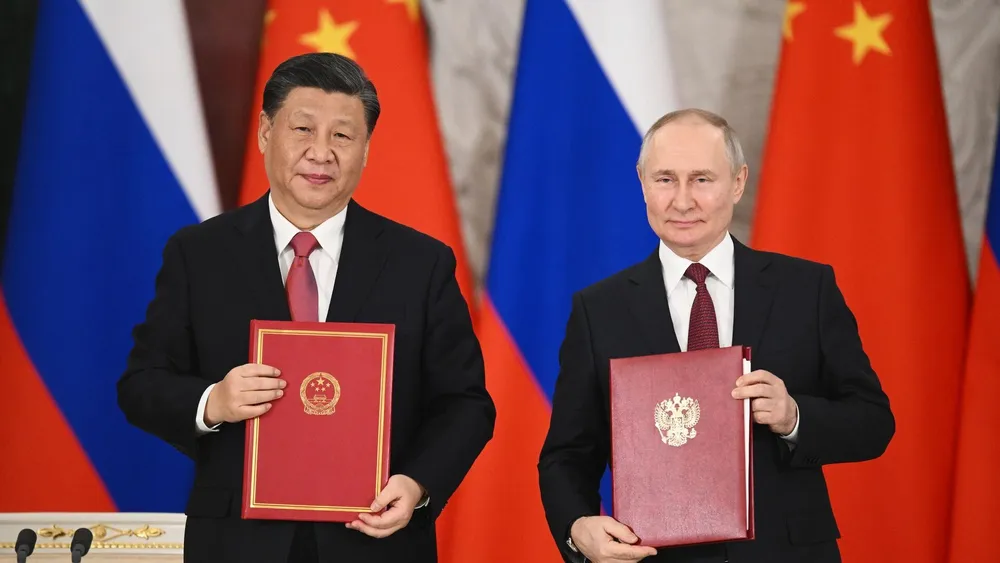
Russia responded to the West's reaction in its usual manner. Putin's spokesman Dmitry Peskov said that sanctions would not change Russia's plans to deploy nuclear weapons in Belarus.
The Ukrainian Foreign Ministry said that Russia's intention to deploy TNW in Belarus is yet another provocative move by the criminal Putin regime, which undermines the principles of the Treaty on the Non-Proliferation of Nuclear Weapons, the nuclear disarmament architecture, and the international security system as a whole.
On March 27, Ukraine demanded to convene the UN Security Council. The UN Security Council will meet on March 31. The agenda item on Putin's new nuclear intentions is formulated as “a threat to international peace and security”. A Ukrainian delegation is expected to attend the meeting. By the way, as of April 1, the Russian Federation should preside in the Council (however surreal it may seem).
Will the Kremlin's new threats work?
Naturally, we should not underestimate and downplay the danger or treat Putin's actions with excessive irony. Theoretically, the deployment of TNW in Belarus could provide an opportunity to open a second – northern – front. However, Ukrainian observers believe that this is unlikely given the current state of the Russian army.
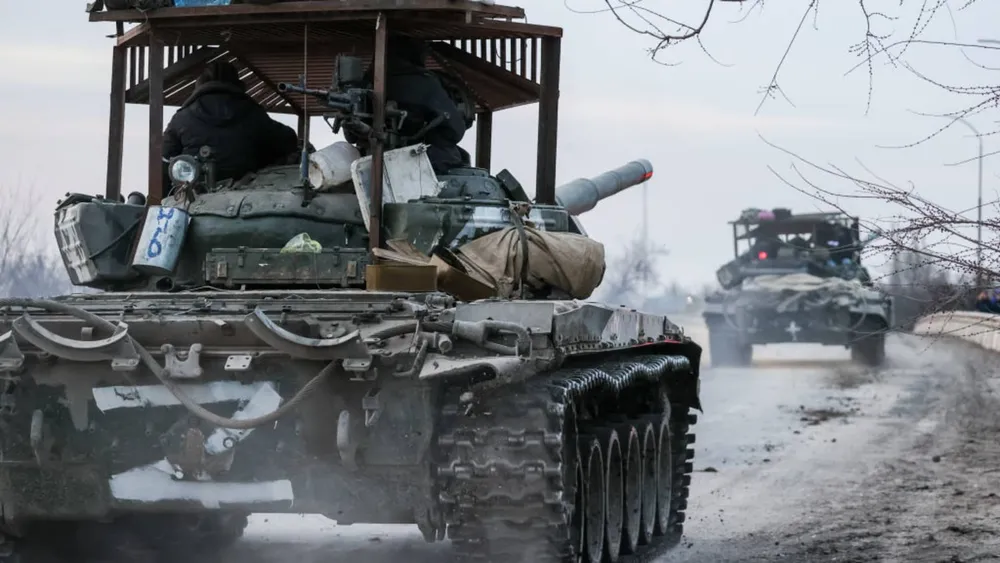
Military experts say that in the military sense, the appearance of nuclear weapons in Belarus does not matter much. Rather, the Kremlin's motives here are political and geopolitical. Let’s distinguish three main ones:
- In domestic politics, these are narratives aimed at its own population – to once again demonstrate the “nuclear power of great Russia”.
- In relations with Ukraine and the West, these are Putin's favorite intimidation tactics. One by one, he tries different ways to intimidate Ukrainians and partners. In addition to nuclear blackmail, let us recall the shelling of Ukrainian cities, gas blackmail and the “freezing of Europe”, the food crisis, etc.
- Finally, the Kremlin is trying to raise the degree of tension in its confrontation with the U.S. in this way.
And judging by the reaction of the allies to Putin's new threats, only the first point will work here.
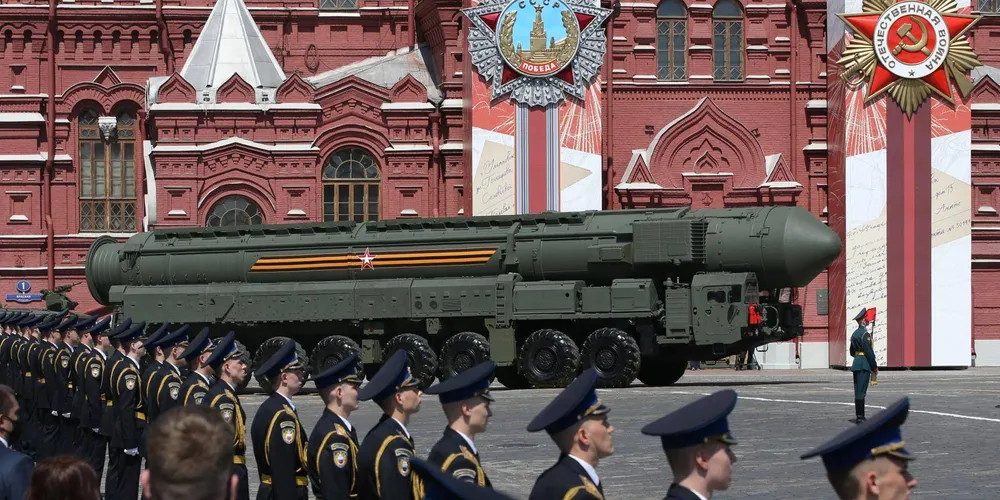
The third point is the most interesting. Putin's latest behavior is yet another attempt to draw the attention of the United States, to put at stake what Moscow believes would be important for the U.S. and force it to sit down at the negotiating table, analysts say. The same story happened with Russia's suspension of membership in START 3. By doing this, Moscow is trying to put pressure on the U.S. to change its policy toward Ukraine. Putin is bringing the nuclear factor into the war with Ukraine, assuming that he will get the U.S.'s attention.
But...nothing happens. The U.S. demonstrates that it is not going to respond in kind and has no plans to change the readiness of its nuclear forces. That is, they have refused to engage in the game with Moscow. Because of this U.S. behavior, there is still no nuclear factor in this conflict. But for Putin, this is almost his last hope!
At the moment, the intelligence community has no credible data about either the construction of the storage facility or the relocation of nuclear weapons to Belarus. On March 27, John Kirby said that the United States had seen no signs that Russia was moving nuclear weapons to Belarus or anywhere else.
On March 29, a spokesman for the Ukrainian Defense Ministry's Main Intelligence Directorate said that Ukrainian intelligence together with its partners from other countries, was monitoring the situation inside Russia and monitoring the possible placement of nuclear weapons on the territory of Belarus. The situation both inside Russia and inside Belarus points that an information campaign is being carried out. According to intelligence assessments, statements about the deployment of nuclear weapons in Belarus are just another bluff and blackmail of the occupierss against the background of failures on the front.
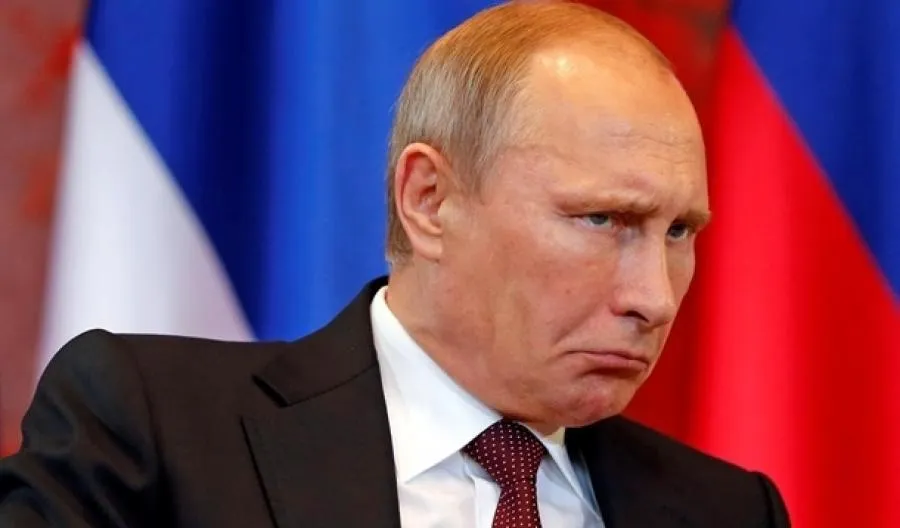
Most likely, the real reason for Putin's decision is that the so-called “military special operation” is far from the plan (for the second year so far!). Putin has less and less to oppose and declare. But he must make his “moves” in this “game”. The deployment of TNW in Belarus is one of the few “aces” he still has in his hole.
But if the West continues to demonstrate the same firm and monolithic position, on the one hand, against all kinds of Kremlin’s blackmail and, on the other hand, towards supporting Ukraine, then this “ace” of Putin is unlikely to work.
Anastasiya Glotova
